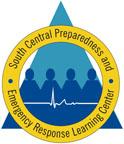
E004: Potable Water
Course Description:
The Drinking Water Modules are intended to provide a broad introductory background on drinking water quality and regulatory issues to give a public health officer a good basic understanding of drinking water production, contaminant monitoring and distribution. The modules cover regulatory requirements, treatment technologies, source protection and health issues associated with microbial and chemical contaminants that are regulated and which must be addressed by water suppliers. They put extra emphasis on microbial contamination and management because microbial contamination is the predominant risk that faces any water supplier. Microbial and other water quality concerns start with the source water, they may require appropriate and effective water treatment, and protection during distribution so that contamination does not occur between the treatment plant and the consumer.
Target Audience
Academic Faculty/Staff, Federal Government Employees, State Government Employees, Local Government Employees, Non-Government Employees and Students
Learning Objectives
- To learn about the structure and content of the US Safe Drinking Water Act
- To understand what is the health basis for drinking water regulations
- To review coliforms monitoring and analysis procedures and requirements
- To review conventional water treatment technology as typically applied to surface water sources
- To learn about distribution systems problems including, water borne disease outbreaks, microbial regrowth and biofilms, backflow, inflow and cross connections, indications of problems, disinfectant residuals, Legionella, corrosion and the Lead and Copper Rule, revisions of the Total Coliform Rule
- To understand the roles of system assessments to diagnose and prevent water problems
- To learn about the modes of source water and its importance, potential threats to source water, source water protection measures, and what approaches exist to support source water protection
Instructor:

Joseph Cotruvo, PhD
President, Joseph Cotruvo & Associates, LLC
Joe Cotruvo is President of Joseph Cotruvo & Associates, a water, environment and public health consulting firm and is active in the World Health Organization (WHO)/NSF International Collaborating Centre for Drinking Water Safety and Treatment. Previously, he served as Director of the Criteria and Standards Division of the U.S. Environmental Protection Agency (EPA) Office of Drinking Water, where he developed many National Drinking Water-Quality Standards and Guidelines, and he initiated the Drinking Water Health Advisory System. He was also Director of the EPA’s Risk Assessment Division and a former Vice President at NSF International. At present, Cotruvo is a member of WHO Drinking Water Guidelines development committees and a manager of WHO’s Desalination Guidance project. He has organized WHO monographs on Heterotrophic Bacteria, Waterborne Zoonoses, Health Aspects of Plumbing, essential minerals in drinking water, and participated in Guideline development for food disinfection, aircraft water quality. He is also engaged in studies of pre-systemic metabolism of bromate, and studies examining the safety of recycled water. In addition, he is active in water reuse applications. He is chairman of the Retail Services (Water Quality Committee) of the Board of Directors of the District of Columbia Water and Sewer Authority. Cotruvo received a B.S. in Chemistry from the University of Toledo and a Ph.D. in Physical Organic Chemistry from Ohio State University.
Available Credit
- 6.00 Participation/CETulane Professional and Continuing Education (PaCE) awards 6.00 hour(s) of credit for completing E004: Potable Water
Price
Required Hardware/software
System Settings
This course is designed to work most effectively if your computer and internet connection meet certain minimal requirements. This course can be accessed using a Windows 10 PC or a Mac with High Sierra1, Mojave, or Catalina. Pop-up blockers should be disabled when viewing the course. Internet Explorer 11 (for Windows 10), or the current version of Google Chrome, Mozilla Firefox, or Apple Safari (for Windows 10 and or Mac) is required. Many of our courses require Java and JavaScript enabled.
Links to External Websites
Links to websites outside this course will open in a new window or tab. Some browsers may minimize the course window. If this occurs, maximize the course window to return to the course.
Adobe Acrobat Reader (for desktops and laptops)
Adobe Acrobat Reader is required to access some documents in this course. If you need to download a free copy of Acrobat Reader, click here.
Internet Connection Speed
A minimum download speed of 1.5 Mbps is recommended for an optimal experience, which is commonly the speed associated with a basic DSL or a cellular/satellite connection. A faster connection, such as cable or fiber service, with further enhance your online experience. A Wi-Fi connection is generally acceptable, but it is dependent upon one of the two services mentioned above. You can check your internet connection speed at http://www.speedtest.net/.

 Facebook
Facebook X
X LinkedIn
LinkedIn Forward
Forward